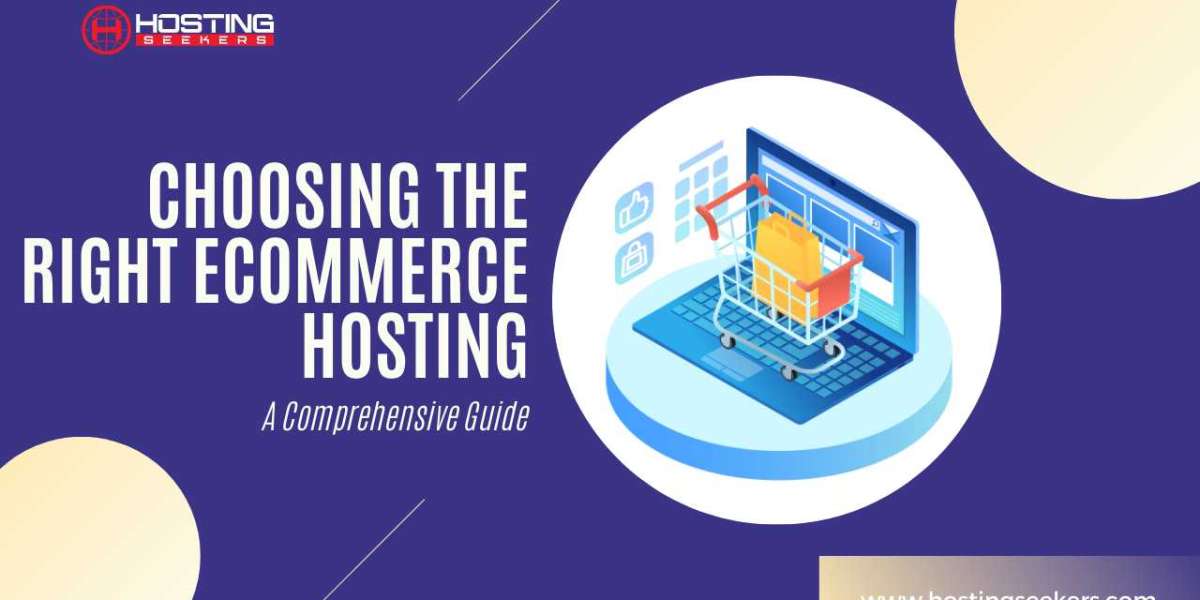In today's digital age, online shopping is becoming increasingly popular, and more businesses are shifting to ecommerce platforms to keep up with the trend. However, building and managing an ecommerce website requires more than just a catchy design and a user-friendly interface. One crucial aspect that businesses often overlook is ecommerce hosting. In this article, we will discuss what ecommerce hosting is and why it is necessary to grow your store in 2023.
What is Ecommerce Hosting?
Ecommerce web hosting refers to a specialized type of web hosting designed to cater to the unique needs of online stores. It involves renting server space and bandwidth from a hosting provider to store and deliver your ecommerce website's content to your customers. Ecommerce hosting providers offer features and services tailored to the specific requirements of online stores, such as SSL certificates, payment gateway integration, website backups, and customer support.
Reliability and Uptime Guarantee
Reliability is a crucial factor to consider when selecting an ecommerce hosting provider. Your website must be accessible to your customers at all times, and any downtime could result in lost sales and a damaged reputation. Look for hosting providers that offer a high uptime guarantee of at least 99.9%.
Security Features
Security is critical when handling sensitive customer data such as credit card information. Look for ecommerce hosting providers that offer SSL certificates, malware scanning, firewalls, and other security features to protect your website and customers' data from online threats.
Scalability
Your ecommerce website's hosting needs may change as your business grows. Therefore, it is crucial to select a hosting provider that offers scalable plans that can accommodate your site's growing needs.
Site Speed and Performance
Site speed and performance are essential factors in providing an excellent user experience for your customers. Look for hosting providers that offer optimized servers and content delivery networks (CDNs) to ensure fast page load times.
Payment Gateway Integration
Integrating payment gateways with your ecommerce website is crucial to enable online payments. Look for ecommerce hosting providers that offer support for multiple payment gateways to provide your customers with various payment options.
Customer Support
In case of any technical issues, it is crucial to have access to reliable customer support. Look for ecommerce hosting providers that offer 24/7 customer support via phone, email, or live chat.
Backups and Disaster Recovery
Regular backups of your website data are essential in case of data loss due to a system failure, cyber-attack, or human error. Look for hosting providers that offer automated backups and disaster recovery solutions to ensure that your website can quickly recover from any data loss.
Control Panel
A user-friendly control panel can simplify website management tasks such as creating email accounts, managing databases, and installing applications. Look for ecommerce hosting providers that offer a user-friendly control panel that enables easy management of your website.
Pricing
Pricing is an important factor to consider when selecting an ecommerce hosting provider. Look for a provider that offers transparent pricing with no hidden fees, and offers plans that fit your budget and website's needs.
Integration with Ecommerce Platforms
If you are using a popular ecommerce platform like Shopify, WooCommerce, or Magento, it is essential to select an ecommerce hosting provider that offers seamless integration with your preferred platform to ensure easy website management and maintenance.
Let’s have a look at the Advantages and Disadvantages of Ecommerce Hosting
E-commerce has revolutionized the way businesses operate, and it has become an essential part of any company's strategy. One of the critical factors in the success of an e-commerce business is choosing the right hosting provider. E-commerce hosting is a specialized type of hosting designed to meet the unique needs of online stores.
Advantages of Ecommerce Hosting
Scalability
One of the most significant advantages of e-commerce hosting is scalability. E-commerce businesses often experience fluctuating traffic, and it is crucial to have a hosting provider that can scale up or down to meet the demands. With e-commerce hosting, businesses can easily upgrade or downgrade their hosting plans based on their needs, ensuring that they have enough resources to handle traffic spikes.
Security
Security is a critical concern for any e-commerce business, and e-commerce hosting providers offer a wide range of security features to protect online stores from cyber threats. E-commerce hosting providers often include features such as SSL certificates, malware scanning, firewalls, and regular backups to ensure that the website and its data are protected from online threats.
Reliability
Reliability is another essential aspect of e-commerce hosting. Online stores need to be available to customers 24/7, and any downtime can result in lost sales and a damaged reputation. E-commerce hosting providers typically offer high uptime guarantees, with some providers guaranteeing 99.9% uptime.
Faster Loading Speeds
Loading speed is a crucial factor in providing an excellent user experience for customers. Slow loading times can result in high bounce rates and lost sales. E-commerce hosting providers often use content delivery networks (CDNs) and optimized servers to ensure that the website loads quickly, providing a better user experience for customers.
Customer Support
E-commerce hosting providers understand the importance of customer support and offer 24/7 support to their clients. E-commerce businesses rely on their hosting providers to keep their websites up and running, and any technical issues can have a significant impact on their bottom line. E-commerce hosting providers typically offer multiple channels for customer support, including phone, email, and live chat.
Cost-Effective
E-commerce hosting can be cost-effective for businesses, especially when compared to building and maintaining an in-house server. Cheap ecommerce hosting providers offer a range of plans to suit different business needs, with some plans starting as low as a few dollars per month.
While e-commerce hosting has many advantages for businesses, there are also some disadvantages that should be considered before making the decision to launch an online store. Here are some of the key disadvantages of e-commerce hosting.
Disadvantages of Ecommerce Hosting
Technical Complexity
Building and maintaining an e-commerce website can be a complex and technical process, requiring knowledge and skills in areas such as web development, database management, and online security. This can make it challenging for businesses that don't have the in-house technical expertise to launch and manage an e-commerce website.
Upfront Costs
E-commerce hosting can involve significant upfront costs, including website design, development, and hosting fees. These costs can be prohibitive for small businesses or those with limited budgets, making it difficult for them to compete with larger e-commerce companies that can afford to invest more in their online presence.
Ongoing Maintenance and Upgrades
E-commerce websites require ongoing maintenance and upgrades to keep them secure, up-to-date and running smoothly. This can involve additional costs and can be time-consuming for businesses that don't have dedicated IT staff to manage their online presence.
Security Risks
E-commerce websites handle sensitive customer information such as credit card details and personal information, making them an attractive target for cybercriminals. This puts businesses at risk of data breaches and cyber-attacks, which can lead to reputational damage and financial loss.
Customer Trust
Customers are increasingly concerned about the security of their personal and financial information when shopping online. E-commerce businesses that fail to adequately protect their customers' data risk losing their trust, which can result in lost sales and damage to their reputation.
Technical Limitations
E-commerce hosting platforms may have technical limitations that can restrict the customization and functionality of an online store. This can limit the ability of businesses to differentiate themselves from competitors or offer unique features that meet the needs of their customers.
Dependence on the Hosting Provider
E-commerce businesses are dependent on their hosting provider to ensure that their website is always available, secure, and performing well. If the hosting provider experiences technical issues or goes offline, this can result in lost sales and reputational damage for the business.
Conclusion
While e-commerce hosting has many advantages for businesses looking to expand their online presence, there are also several disadvantages that should be taken into account before launching an online store. These include technical complexity, upfront costs, ongoing maintenance and upgrades, security risks, customer trust, technical limitations, and dependence on the hosting provider. By carefully considering these factors and selecting a reputable ecommerce hosting provider that meets the needs of your business, you can minimize the risks and maximize the benefits of e-commerce hosting.



